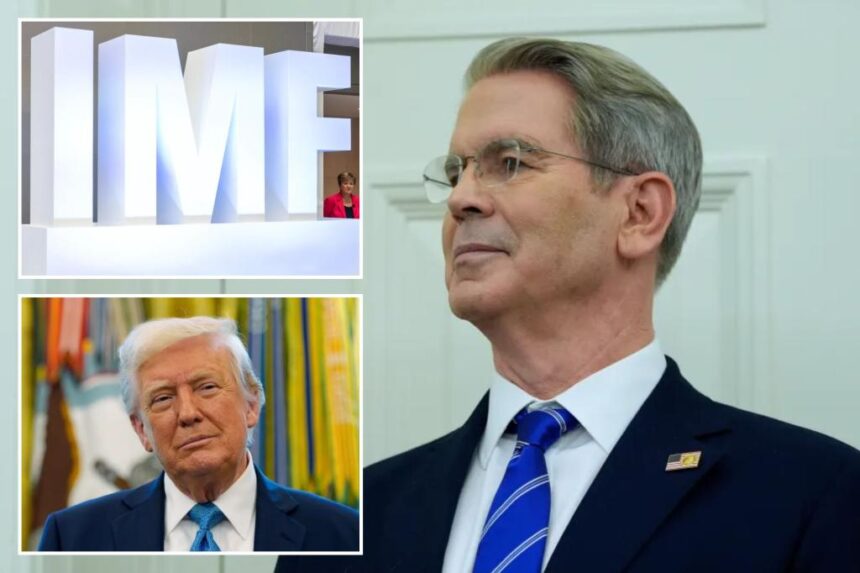Treasury Secretary Scott Bessent has criticized the International Monetary Fund (IMF) for focusing more on promoting woke causes rather than economic stability. Speaking at the Institute of International Finance forum in Washington, DC, Bessent accused the IMF of “mission creep,” stating that the agency spends an excessive amount of time and resources on climate change, gender, and social issues, which he believes is overshadowing its work on crucial macroeconomic issues.
Bessent also took a dig at the World Bank, the IMF’s partner institution, cautioning them to rein in excessive spending and focus on their core missions. He emphasized the need for both institutions to be accountable and stay true to their objectives.
In his address, Bessent also criticized the Chinese Communist Party for trying to export its way out of economic troubles. He highlighted the importance of maintaining American dominance in international institutions like the IMF and the World Bank, emphasizing the significance of the “America First” policy.
The IMF recently revised its growth forecast for the US economy, citing uncertainties surrounding tariffs imposed by the Trump administration. Bessent noted that over 100 countries had approached the current administration for talks following the announcement of reciprocal tariffs.
The IMF, established in 1944 during the Bretton Woods Conference, serves as a financial firefighter, providing assistance to debt-laden economies. However, critics argue that the austerity measures imposed by the IMF can be too severe. The organization played a crucial role during the European debt crisis in 2008, demanding austerity measures from countries like Greece, Ireland, and Spain in exchange for loans.
Despite its efforts to stabilize economies, the IMF has faced criticism for the lavish perks enjoyed by its officials. Reports have revealed that IMF staff members receive exclusive benefits, including access to upscale facilities and generous retirement packages.
In conclusion, Bessent’s remarks shed light on the need for the IMF and the World Bank to prioritize economic stability over social issues. As the global financial landscape continues to evolve, it is essential for these institutions to stay focused on their core missions and ensure accountability in their operations.







